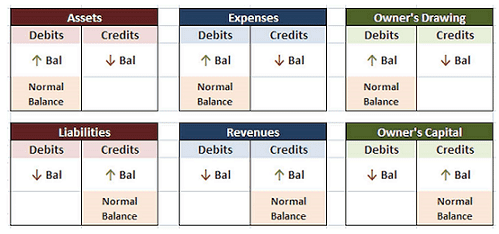Law Firm Bookkeeping 101 Bench Accounting

Recording all revenues and expenses when they happen is much easier with accounting software as it connects to your firm’s bank account and automatically records and classifies all transactions. Most small businesses, including small law firms, choose the cash basis of accounting, as this method allows the firm to delay paying taxes on income until the payment comes in the door. If you want your firm to stay compliant, be financially successful, and grow, you need to have an accurate and clear bookkeeping system for your law firm to follow. This could mean taking on bookkeeping tasks in-house or hiring a professional bookkeeper with experience working with law firms. A bookkeeper could be helpful for administrative help with your firm’s finances (like recording transactions, balancing accounts, and creating invoices). But, when it comes to using the data that a bookkeeper records to help your firm (by tasks like preparing financial statements, financial forecasting, and capturing expenses), you need an accountant.

Mismanaging trust funds

Named after Klyde Warren, the young son of billionaire Kelcy Warren, the 5.2-acre Klyde Warren Park was built above Woodall Rodgers Freeway and connects Uptown and Downtown, specifically the Arts District. Klyde Warren Park is home to an amphitheater, jogging trails, a children’s park, a dog park, a putting green, croquet, ping pong, chess, an outdoor library, and two restaurants. Food trucks give another option of dining and are lined Insurance Accounting along the park’s Downtown side.
- The December 31 bank statement shows a balance that is $10,000 less than your books or the client’s trust ledger due to a timing difference.
- Here’s a guide on how to effectively generate financial statements for law firms.
- Attorneys can easily track trust fund activities, monitor deposits and withdrawals, and generate detailed reports, minimizing the risk of trust account errors.
- Learn more about Bench, our mission, and the dedicated team behind your financial success.
How to Hire Staff for Law Firm Accounting Jobs
This process starts with setting up separate bank accounts strictly for client funds to ensure they’re kept distinct from operational finances. Every withdrawal from these accounts must be carefully documented, and all transactions should be reconciled regularly to avoid discrepancies. Interest on Lawyer Trust Accounts, also known as IOLTA accounts, are bank accounts used to hold client retainers, settlement law firm bookkeeping funds, and other money that belongs to clients. By using sound bookkeeping practices to keep accurate records and consistently review the firm’s financial statements on a monthly or weekly basis, you’ll see your firm’s true financial picture.
- Trust account liability almost operates like strict liability, where simply committing an act is proof enough for guilt.
- Unlike typical businesses, law firms handle retainers and trust accounts, which must be closely tracked to avoid ethical issues and legal repercussions.
- This tailored approach ensures transparency and prevents potential payroll-related issues.
- You should keep these supporting documents for the time required by the IRS.
Ignoring Professional Help
On the other hand, income refers to what is left over after the firm’s costs and expenses have been deducted from the revenue. Taxes, property expenses, legal dues, and payroll are typical expenses law firms must deduct from revenue to get income. Mixing up the two can give you a false picture of your firm’s financial health. As you learn more about the process, you will likely find that you bookkeeping already understand law firm accounting and financial management. But no matter how much knowledge you hold, this guide will help you attain a high level of fluency in both practices.
- It also requires the bank account and book balances to match client ownership details.
- Bookkeeping is essential for accounting, as accountants use the records of bookkeepers to perform their analysis.
- Understanding the nuances of this roadmap is crucial for maintaining financial clarity and strategic decision-making.
- Once you understand the basics, consider hiring an accountant, either as a contractor or as an employee.
- Your bookkeeper goes into your accounting software regularly (at least weekly) and records all the money coming in and all the money going out so that it appears in the correct place.
Every business gets busy, and it is easy to get distracted by the work you are doing for your clients. However, your law practice is still a business, so you will need to treat it as a business. Staying compliant with the regulation of ethics is the responsibility of every lay firm.

Mastering these aspects of legal bookkeeping allows you to deliver exceptional value, ensure compliance, and enhance the financial clarity of law firms. With the accrual method, you record revenue when it’s earned and expenses when they’re incurred—whether they’re paid right away or not. This creates a better matching of costs to the revenues earned in a given month or year. It allows for more meaningful financial management that isn’t influenced by the ups and downs of cash flow. To effectively manage legal accounting for law firms, it’s wise to start with a foundation that works for all aspects of running your firm. While it’s essential to understand the fundamentals of accounting for law firms, you still aren’t an accountant or bookkeeper.
Managing Expenses and Overhead Costs
By automatically recording all transactions from bank accounts and credit/debit cards, We take the hassle out of data entry, allowing retailers and wholesalers to focus on their core operations. As retainer agreements are a common practice in law firms, set up accounts to track retainer transactions separately. This helps in managing client expectations and ensuring that retainer funds are appropriately utilized. Bookkeeping is an essential part of any business, especially for law firms. We hope this article has enlightened you about legal bookkeeping, and some of the common mistakes that you should avoid. When your law firm receives payment for an invoice, it is referred to as revenue.

To determine your income accurately, you must first allocate a portion of the revenue to cover any costs incurred by this job. This portion of the revenue is not part of your firm’s income and must be assigned as such. Despite this, many attorneys fail to separate these funds, which can lead to further bookkeeping mistakes and compliance issues. Bookkeeping for attorneys can be difficult as they are sometimes not specifically trained in certain accounting fields and practices. This can sometimes lead to mistakes in their bookkeeping, which is why we will look at some of the most common mistakes so that you may avoid these pitfalls and ensure your legal bookkeeping is beyond reproach. As an attorney, you’re aware that when you receive money that belongs to a client, you must place those funds in a trust account separate from your own money.

